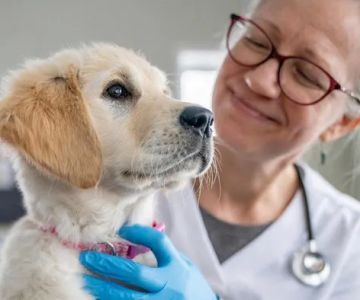What College Courses Are Needed to Become a Veterinarian?
Becoming a veterinarian is a highly rewarding career choice, but it also requires dedication and the right education. As with many medical fields, veterinarians must go through extensive training and coursework to gain the necessary skills to care for animals. If you are considering a career in veterinary medicine, you may be wondering what college courses are needed to become a veterinarian. This article will break down the essential courses you need to pursue this career path and provide guidance on how to prepare yourself for veterinary school.
1. Basic Science Courses: The Foundation of Veterinary Medicine
The journey to becoming a veterinarian starts with a strong foundation in the sciences. This is because veterinary medicine, much like human medicine, is rooted in biology, chemistry, and physics. During your undergraduate years, you'll need to complete courses in the following subjects:
- Biology – Understanding the biological systems of animals is essential. Courses in cellular biology, microbiology, and physiology will give you a solid foundation in the life sciences.
- Chemistry – Both organic and inorganic chemistry are crucial. These courses teach you about the chemical processes in living organisms and how medications interact with those systems.
- Physics – Basic physics principles are necessary for understanding how things like x-rays and other diagnostic tools work in veterinary practice.
- Mathematics – You may need to take calculus or statistics, as these courses help you understand measurements, calculations, and data analysis—important for administering medications and interpreting lab results.
By excelling in these basic science courses, you will be laying a strong foundation for your future veterinary education and career. Many students choose to major in biology or animal science, as these fields align well with veterinary school prerequisites.
2. Advanced Biology and Anatomy Courses
Once you have mastered the basic sciences, you will move on to more advanced courses in biology and anatomy. These courses are crucial because they delve deeper into the specific needs of animals' bodies and the different species you will treat as a veterinarian. The following courses are highly recommended:
- Animal Physiology – Understanding how animals' organs and systems work is critical for diagnosing and treating diseases.
- Animal Anatomy – This course is essential for understanding the structure of animals’ bodies. It will help you in surgeries, treatments, and physical examinations.
- Genetics – Genetics courses teach you about heredity and how certain genetic conditions affect animals, which is vital for breeding, inheritance issues, and disease prevention.
- Immunology – A key subject in understanding the immune system, which is crucial for diagnosing infections and administering vaccines.
Advanced biology and anatomy courses are typically offered as part of a pre-veterinary program at most colleges and universities. These courses prepare you for the in-depth knowledge you will gain at veterinary school.
3. Behavioral Science and Psychology for Animal Care
Veterinarians must not only have knowledge of animal biology but also be able to understand animal behavior. This is particularly important when working with stressed or injured animals, as understanding their behavior helps in handling them safely. Courses in animal behavior, psychology, and even ethology (the study of animal behavior in natural environments) will be beneficial.
- Animal Behavior – This course teaches you how to understand and manage animals’ emotional states, which is essential for ensuring their well-being during treatment.
- Veterinary Psychology – Helps in understanding how to approach animals with different temperaments and how to reduce stress in clinical settings.
These courses are important for creating a well-rounded veterinarian who can manage a variety of situations, including those that require compassion and calmness in the face of stress or injury.
4. Clinical Skills and Veterinary-Specific Courses
While clinical experience is mostly gained during veterinary school itself, some undergraduate programs offer veterinary-specific courses that give you a head start. These courses focus on practical aspects of animal care, including:
- Animal Disease – This course focuses on various animal diseases, their symptoms, and how to treat them effectively.
- Veterinary Microbiology – Covers the study of pathogens that affect animals and the proper use of antibiotics and other medications.
- Veterinary Surgery – A foundational course for those who want to specialize in surgery, teaching basic surgical techniques and practices.
These courses give you a taste of what’s to come in veterinary school and provide a more hands-on approach to learning about the veterinary field.
5. Communication and Ethics Courses
Being a veterinarian is not only about medical knowledge but also about interacting with clients, pet owners, and colleagues. Communication skills are essential, especially when discussing treatment options, diagnosis, and difficult situations such as end-of-life care. Therefore, many veterinary programs recommend or require courses in:
- Veterinary Ethics – Helps you navigate the moral and ethical issues you will face as a veterinarian, from decisions about euthanasia to animal welfare concerns.
- Communication Skills – Teaches effective ways to communicate with pet owners, ensuring they understand their pet’s health needs and treatments.
These courses are crucial for building relationships with pet owners and fostering trust, which is vital for any veterinary practice.
6. Gaining Practical Experience and Volunteering
While taking these courses is important, gaining hands-on experience is equally essential. Many aspiring veterinarians volunteer at animal shelters, clinics, or farms to get a feel for what it’s like to care for animals in real-world settings. Volunteering not only helps you build your resume but also provides valuable experience that will help you during your veterinary education and in your career.
Shadowing veterinarians and working with different types of animals will give you a clearer understanding of what this profession entails. It will also allow you to develop your technical skills and deepen your passion for animal care.
SEO Title: What College Courses Are Needed to Become a Veterinarian? SEO Keywords: veterinary school courses, pre-veterinary program, animal care, veterinarian education, animal anatomy, animal behavior, veterinary science SEO Description: Discover what college courses you need to take to become a veterinarian. Learn about essential classes in biology, animal behavior, and clinical skills that will prepare you for veterinary school.










